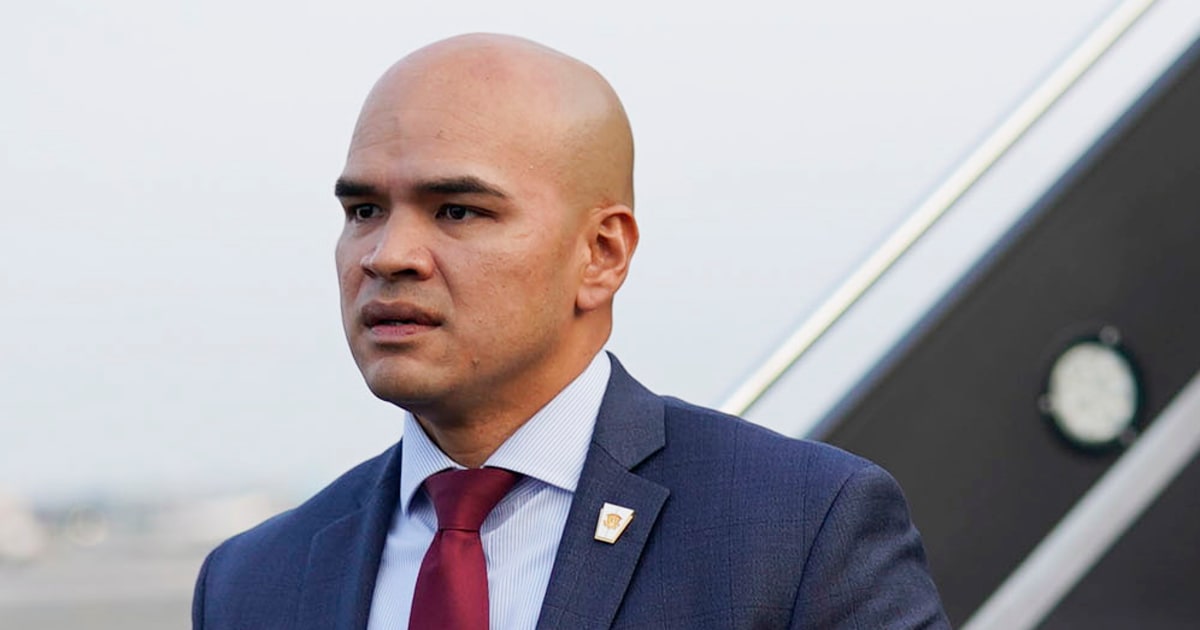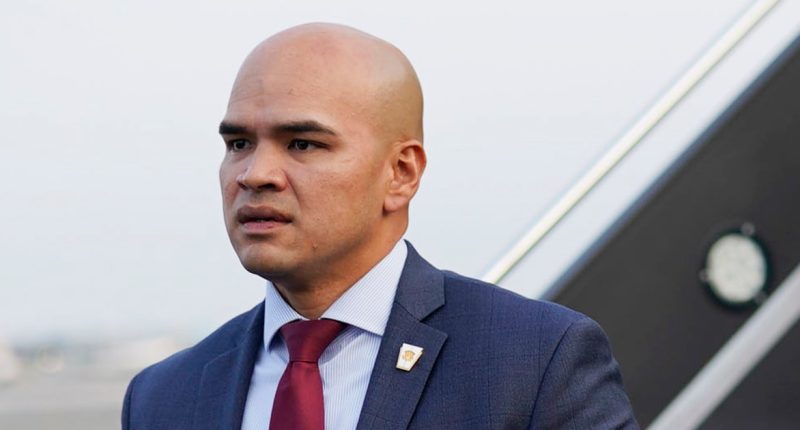
FORT PIERCE, Fla. — Walt Nauta, Donald Trump’s valet and co-defendant in the Mar-a-Lago documents case, will be able to keep his attorney despite potential conflicts of interest raised by the government.
Florida-based U.S. District Judge Aileen Cannon, who is overseeing the case involving the former president’s alleged mishandling of sensitive documents, on Friday accepted that Nauta had “knowingly, intelligently, and voluntarily” waived his right to conflict-free counsel at the conclusion.
Cannon advised Nauta that in doing so, he could have limited his ability to appeal a potential conviction at trial on the grounds that his attorney was conflicted.
The judge’s decision allowing Nauta to keep his defense attorney, Stanley Woodward, was delivered at a “Garcia hearing” — a routine legal proceeding to notify a criminal defendant of the risks of potential conflicts of interest.
Woodward had previously represented a key witness in the case that the government intends to call at trial. He also currently represents one other potential government witness. According to FEC filings, his legal firm was paid more than $200,000 in the first half of this year by Trump’s Save America PAC.
The government raised the issue that Woodward could be prohibited from cross-examining his former client, Yuscil Taveras — a Mar-a-Lago IT worker referred to as “Trump Employee 4” in the updated indictment — as well as from attacking Taveras’ credibility in summation to the jury at trial.
Woodward represented Taveras during his initial grand jury testimony in March during the special counsel’s criminal investigation.
Taveras later dropped Woodward as his attorney and flipped to cooperate with the government under a non-prosecution agreement.
The government says he has information about an alleged scheme involving Nauta and Carlos De Oliveira, another co-defendant in the case, to delete security footage at Mar-a-Lago at Trump’s behest.
Cannon advised Nauta that Woodward “must take care to avoid harming the interests” of his current and former clients at trial. If he did, he could “be a weaker advocate” for Nauta, Cannon said.
Nauta told the court, “I do understand the conflicts,” in reference to Woodward’s current and former clients, “and how that could inhibit me, but I still choose to move forward with Mr. Woodward as my lawyer.”
Cannon accepted an arrangement agreed to by the special counsel’s office and the defense team prior to Friday’s hearing that would have Nauta’s additional counsel in this case, Sasha Dadan, cross-examine Taveras.
During proceedings earlier this month, David Harbach, who’s representing the special counsel’s office, raised the issue that Woodward could be prevented from attacking Taveras’ credibility in summation, in addition to the potential conflicts that could arise in the cross-examination.
Cannon, during that hearing, admonished the government for “frankly wasting the court’s time” by bringing in new arguments without proper notice to the court or to the defense. She said that she was “disappointed” with the government.
At the time, Cannon said Harbach was injecting a much broader principle than those raised by the government in previous filings.
Source: | This article originally belongs to Nbcnews.com










